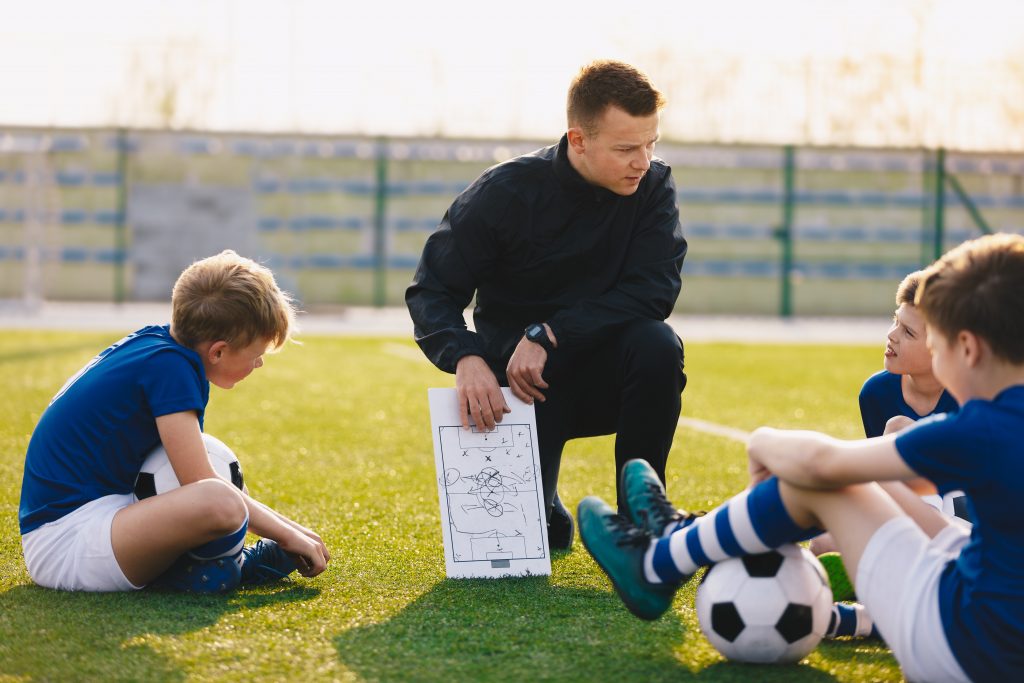Learning in the Flow of Work
Opportunities for development are the second most important factor in workplace happiness (after the nature of work itself), yet the urgency of work too often trumps the luxury of learning. A Harvard Business Review article suggests “learning in the flow of work”, which refers to learning opportunities that fit around and align with the nature…
Volunteer Coach Expectations
Many community sport clubs rely on volunteers for management and program delivery, including coaching. One way to support volunteer recruitment and retention is to understand volunteers’ expectations – both of themselves, and of the organization. Learn more about how sport organizations can support strong “psychological contracts” amongst volunteer coaches in the SIRCuit.
Workplace Wellness & Colleagues
While many people have strong friendships with work colleagues, eventually everyone will be required to work with someone they just don’t like. To focus on effective collaboration, reflect on the cause of the tension and your reaction to it, work to understand the other person’s perspective, become a problem solver rather than a competitor, and…
Psychological contract
A psychological contract refers to the unwritten set of expectations that govern a volunteer/organization relationship. Research from Wilfrid Laurier and Western University examined the psychological contracts of community coaches to uncover key components that may contribute to coach retention. Coaches’ expectations of themselves related to professionalism and technical administration. Coaches’ expectations of their organizations related…
A Positive Environment for Volunteer Coaches: The Role of Psychological Contract

Community sport organizations or clubs are the cornerstone of sport in Canada. A vast majority of these community sport clubs rely almost exclusively on volunteers for their management and program delivery (Cuskelly, Hoye, & Auld, 2006; Doherty, 2005). A threat to these organizations and their sustainability is acquiring and retaining volunteer coaches to deliver the…
Bystander Effect
Whether relating to abuse and harassment, or systemic doping, you may wonder how some issues remain open secrets in organizations where multiple stakeholders know about a problem or a concern, but no one publicly brings it up. Research reported in the Harvard Business Review describes a “bystander effect” whereby people stand on the sidelines as…
Warmth vs. Competence
New research from Nipissing University examined the characteristics parents/guardians use to judge unknown youth hockey coaches. The findings reveal that parents/guardians determined the coach to be less suitable if they’re perceived to lack competence, whereas a perceived lack of warmth did not have similar consequences. Read more about the findings and what they mean for…
Intellectual humility
“Intellectual humility”, often related to open-mindedness, is linked to four key leadership characteristics: respect for other viewpoints; not being intellectually overconfident; separating one’s ego from one’s intellect; and willingness to revise one’s own viewpoint. However, philosophers argue the most effective leaders have one additional characteristic – “openness to experience”, which makes them curious enough to…
Unpaid Interns
Many sport organizations rely on unpaid interns to provide valuable workplace opportunities to students and young professionals, and boost capacity during busy times. However, some unpaid intern positions are contrary to employment laws in Canada. On #ThrowbackThursday, learn more in this “old but good” 2014 blog from the Sport Law & Strategy Group.
Communities of character
A values-based approach to sport supports the development of “communities of character” where athletes, coaches, officials, parents and other stakeholders work together to create a welcoming, safe, athlete-centred environment. Learn more about values-based sport and creating communities of character in the SIRCuit.